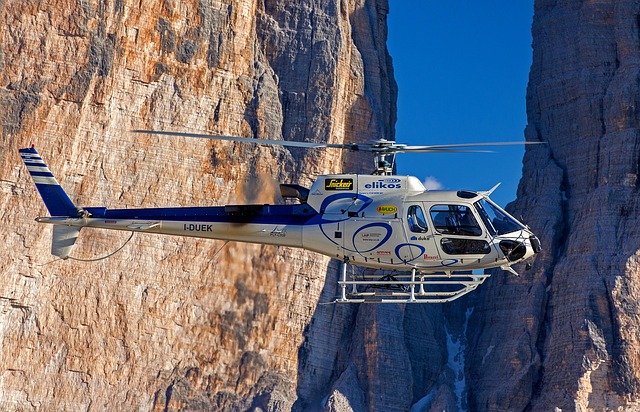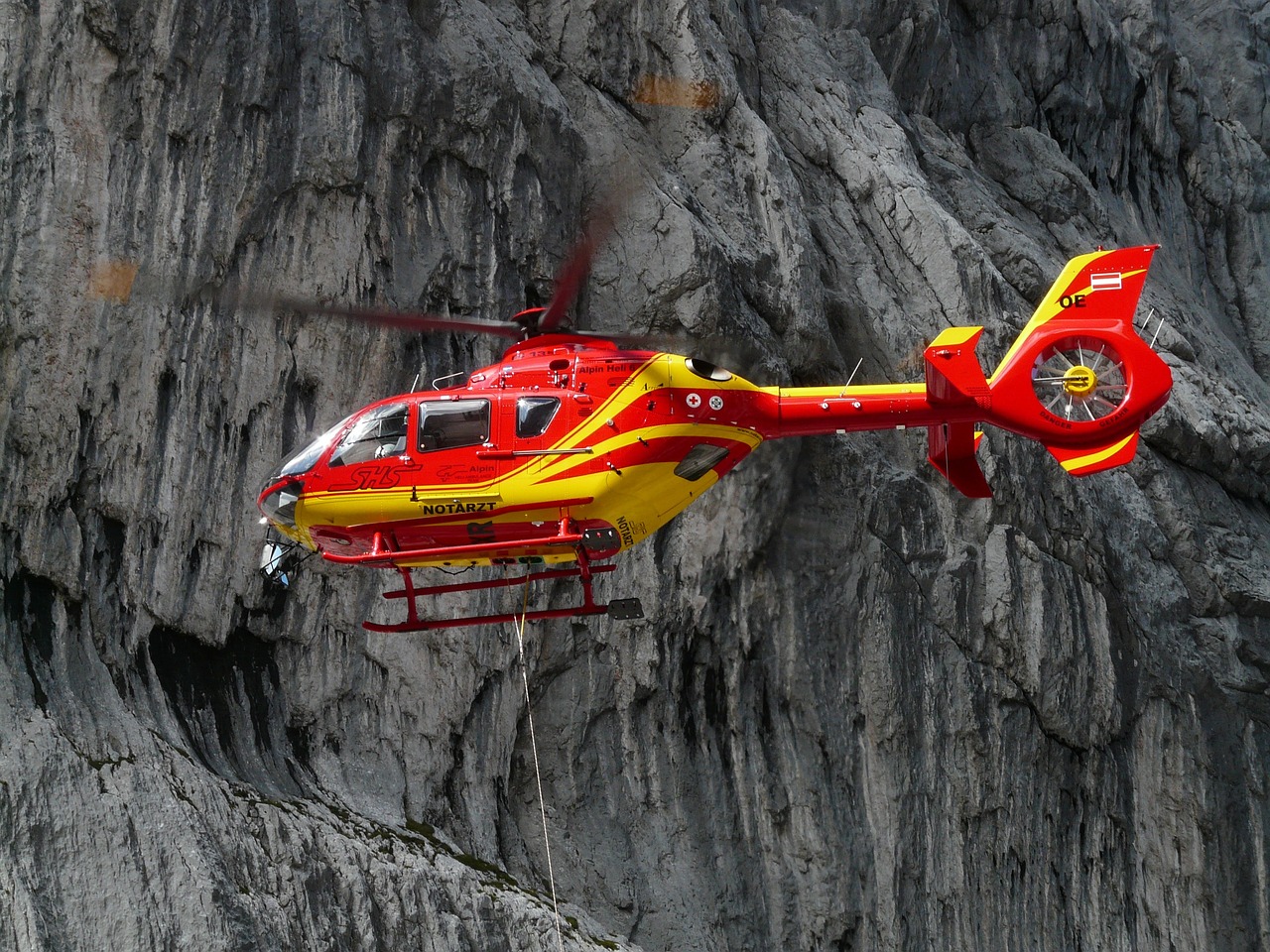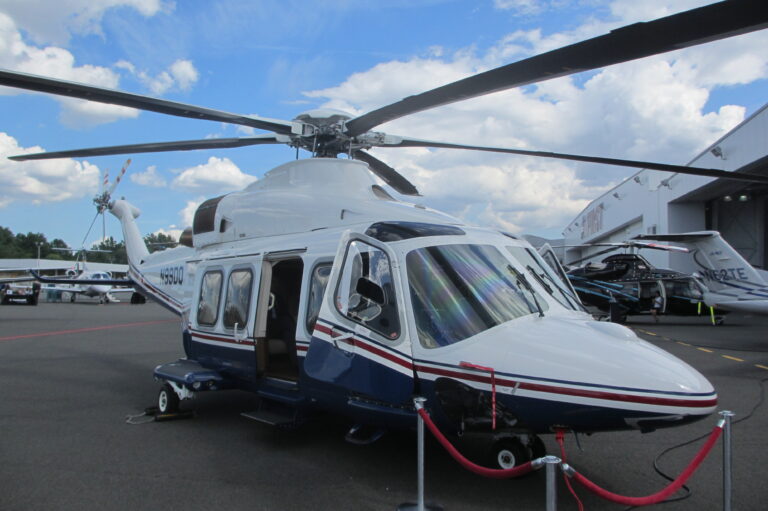Is It Expensive to Own a Helicopter
Curiosity about the cost of owning a helicopter often finds its way into conversations, piquing the curiosity of many. While flying high in the sky on your private chopper might seem captivating, the financial aspect behind helicopter ownership begs consideration. In this article, we’ll dive straight into the topic at hand without any flamboyant verbiage, shedding light on the truth behind the expense of owning a helicopter. Prepare to soar through the details with a neutral perspective, as we untangle the web of costs and discover whether helicopter ownership is a luxury only a select few can afford.
Table of Contents
- The Cost of Owning a Helicopter: A Comprehensive Analysis
- Factors Influencing the Price of Helicopter Ownership
- Understanding the Initial Investment: Purchasing a Helicopter
- Breakdown of Ongoing Expenses: Maintenance and Operational Costs
- Exploring Insurance and Regulatory Expenses for Helicopter Owners
- Financial Considerations: Budgeting and Financing Options for Helicopter Ownership
- Optimizing Helicopter Ownership: Cost-Saving Strategies and Recommendations
- FAQs
- The Conclusion
The Cost of Owning a Helicopter: A Comprehensive Analysis
When it comes to owning a helicopter, the costs can quickly add up. From the initial purchase price to ongoing maintenance and operational expenses, it’s essential to have a comprehensive understanding of the financial obligations involved. Let’s dive into the various factors that contribute to the overall cost of owning a helicopter.
1. Helicopter Purchase Price: The first significant expense that one needs to consider is the actual purchase cost of the helicopter itself. Depending on the model, age, and condition, prices can range anywhere from $200,000 to several million dollars. Keep in mind that additional features, such as avionics systems or interior customization, can significantly impact the price.
2. Maintenance and Inspection: Helicopters require regular maintenance to ensure their safe operation. Routine inspections, engine overhauls, and part replacements are all necessary expenses. Averaging at around $50,000 to $100,000 annually, these costs can vary based on the type and size of the helicopter. Compliance with aircraft airworthiness directives and manufacturer’s recommendations is crucial for maintaining safety and extending the lifespan of your aircraft.
3. Fuel and Operating Costs: Fuel consumption is another key consideration in the overall cost of owning a helicopter. Based on the type and size of the aircraft, average fuel burn rates range from 20-75 gallons per hour. Prices for aviation fuel also vary by location and market conditions, currently averaging around $4-6 per gallon. Additionally, expenses such as hangar fees, insurance premiums, pilot salaries, and landing fees should be factored into the operational expenses, which can easily reach tens of thousands of dollars per year.
4. Training and Licensing: Another expense to consider when owning a helicopter is the training and licensing requirements. Proper training ensures safety and competency in operating the aircraft. Costs associated with obtaining private, commercial, and instrument ratings can range from $15,000 to $40,000 or more, depending on the flight school and training program chosen.
When analyzing the cost of owning a helicopter, it is vital to remember that these are just a few of the major financial aspects to consider. It’s wise to consult with aviation experts and industry professionals to develop a realistic and accurate estimation of the total expenses involved in helicopter ownership.
Factors Influencing the Price of Helicopter Ownership
There are several key factors that have a significant impact on the price of owning a helicopter. Understanding these factors is crucial when considering the financial commitment involved in helicopter ownership.
First and foremost, the type of helicopter plays a major role in determining its cost. Different models offer varying features, capabilities, and performance levels, which directly affect their price tags. For instance, a top-of-the-line, high-performance helicopter will naturally come with a higher price compared to a simpler, entry-level model. It’s important to carefully evaluate your specific needs and budget to determine the ideal helicopter type for your requirements.
Secondly, maintenance and operational costs must be taken into account when calculating the overall price of owning a helicopter. Regular maintenance, including inspections, repairs, and scheduled servicing, is essential for ensuring the safety and longevity of your aircraft. These costs can vary based on factors such as helicopter age, usage patterns, and the availability of maintenance facilities. Additionally, fuel expenses, insurance premiums, and pilot training and certification requirements are ongoing expenses that need to be considered. By factoring in these costs, you can gain a realistic understanding of the financial implications of helicopter ownership.
Understanding the Initial Investment: Purchasing a Helicopter
When it comes to purchasing a helicopter, it’s essential to understand the initial investment involved. Owning a helicopter can be an exciting venture, but it’s crucial to have a clear understanding of what you’re getting into financially. Here’s a breakdown of the key factors you need to consider before taking the leap into helicopter ownership:
1. Cost of the helicopter: The cost of a helicopter can vary greatly depending on several factors such as the size, model, and age. On average, helicopters can range from $200,000 for a used, smaller model to several million dollars for a brand-new luxury helicopter. It’s important to determine your budget and consider all associated costs, including maintenance and insurance.
2. Maintenance expenses: Owning a helicopter involves significant maintenance expenses. Routine maintenance such as inspections, oil changes, and engine overhauls are essential to keep your helicopter in optimal condition. These costs can add up over time and should be factored into your budget.
3. Insurance coverage: Helicopter insurance is a crucial aspect of ownership. Insurance rates can vary based on factors such as pilot experience, intended use, and location. It’s important to research and compare different insurance providers to find the right coverage that suits your needs while fitting within your budget.
4. Pilot training and licensing: If you’re planning to operate the helicopter yourself, you’ll need to undergo proper pilot training and obtain the necessary licensing. Training costs can vary, depending on the type of aircraft and the level of certification sought.
Understanding the initial investment involved in purchasing a helicopter is vital for a smooth ownership experience. Take the time to carefully evaluate all the factors mentioned above to make an informed decision and ensure that owning a helicopter aligns with your financial capabilities.
Breakdown of Ongoing Expenses: Maintenance and Operational Costs
The breakdown of ongoing expenses is a significant aspect of any business or project. This section focuses specifically on maintenance and operational costs, two key elements that require careful consideration and planning.
Maintenance costs cover the regular upkeep and repairs needed to keep the business or project running smoothly. This includes routine servicing, equipment maintenance, and facility repairs. Allocating a budget for maintenance is crucial to ensure that all necessary repairs and maintenance tasks are carried out efficiently, thereby minimizing downtime and maximizing productivity. Some essential maintenance expenses to consider may include:
– Equipment servicing: Regularly maintaining equipment not only extends its lifespan but also ensures optimal performance.
– Facility repairs: From fixing broken fixtures to repairing infrastructure, setting aside funds for facility repairs is essential to ensure a safe and functional working environment.
– IT support: In today’s technology-driven world, having a dedicated IT support team is crucial. This includes expenses related to software updates, cybersecurity measures, system maintenance, and hardware repairs.
Operational costs, on the other hand, encompass various expenses required for day-to-day business operations. While these costs can vary depending on the nature of the business, here are some common operational expenses to consider:
– Utilities: Covering electricity, water, heating, and other utility bills ensures that the business continues to function smoothly.
– Inventory management: Keeping track of inventory and replenishing stock entails costs related to storage, logistics, and inventory software.
– Staffing: Payroll, benefits, training, and recruitment expenses fall under the operational costs umbrella. Allocating funds for staffing ensures a capable and motivated workforce.
– Marketing and advertising: Promoting the business and reaching potential customers through various marketing channels incurs expenses, including advertising campaigns, social media management, and website maintenance.
By considering the breakdown of ongoing expenses in terms of maintenance and operational costs, businesses and projects can better understand and plan for the financial implications associated with these crucial aspects.
Exploring Insurance and Regulatory Expenses for Helicopter Owners
When it comes to owning a helicopter, there are several insurance and regulatory expenses that every owner must consider. Insurance Costs: Insuring a helicopter is crucial for protecting your investment and ensuring peace of mind. Helicopter insurance typically covers personal liability, hull damage, medical expenses, and theft or vandalism. The cost of insurance varies based on factors such as the type of coverage, the value and age of the helicopter, the pilot’s experience, and the owner’s flying history. It is important to research and compare insurance providers to find the best coverage at the most competitive rates.
Regulatory Expenses: Helicopter owners must also account for various regulatory expenses, including registration, licenses, and annual inspections. Registering your helicopter with the relevant aviation authority is essential and involves fees that vary depending on the country and specific regulations. Additionally, pilots operating the helicopter need to possess the necessary licenses, which come with their own costs and requirements. Lastly, annual inspections are mandatory to ensure the airworthiness and safety of the aircraft, and owners must budget for these expenses accordingly.
Financial Considerations: Budgeting and Financing Options for Helicopter Ownership
Budgeting for helicopter ownership involves careful planning and calculation of expenses. It is essential to estimate the overall cost of owning a helicopter, including the initial purchase price, insurance, maintenance, and operational expenses. Creating a detailed budget will help you to keep track of your expenses and ensure that you are financially prepared for the responsibilities of owning a helicopter.
1. Determine the initial purchase price: Research and compare prices of different helicopter models to find one that fits your needs and budget. Consider additional costs such as taxes and any modifications or upgrades you may want to make.
2. Insurance coverage: Protecting your investment with comprehensive insurance coverage is crucial. Contact aviation insurance providers to obtain quotes and compare policies. Keep in mind that insurance rates may vary based on factors such as your flying experience and the helicopter’s intended use.
3. Maintenance and repairs: Regular maintenance is necessary to ensure the safe and reliable operation of your helicopter. Calculate the estimated costs of routine inspections, parts replacement, and unexpected repairs. Consider setting aside a contingency fund for unforeseen maintenance expenses.
4. Operating expenses: Fuel, hangar fees, landing fees, and pilot wages (if applicable) are recurring costs associated with helicopter ownership. Research these expenses and factor them into your budget to have a clear understanding of the ongoing financial commitment required.
When it comes to financing options for helicopter ownership, several alternatives can help make your dream of owning a helicopter a reality.
1. Cash purchase: If you have substantial savings or investment funds available, purchasing a helicopter outright can save you from accruing interest on loans.
2. Helicopter loans: Many financial institutions offer loans specifically tailored for aircraft purchases. These loans often have competitive interest rates and flexible terms. You can contact banks or independent lenders who specialize in aircraft financing to explore this option.
3. Lease financing: Instead of owning the helicopter outright, leasing can provide a more budget-friendly alternative. Leasing options vary, so it is crucial to compare terms, monthly payments, and any additional conditions to determine if this option aligns with your financial goals.
4. Partnership ownership: Sharing ownership and costs with other individuals or organizations can significantly lighten the financial burden. Discuss potential partnerships with like-minded individuals who have a similar interest in helicopter ownership.
By carefully considering your financial situation and exploring different budgeting and financing options, you can better prepare for the responsibilities and expenses associated with helicopter ownership. This will allow you to enjoy the freedom and thrill of soaring through the skies with peace of mind.

Optimizing Helicopter Ownership: Cost-Saving Strategies and Recommendations
When it comes to owning a helicopter, finding ways to optimize costs without compromising safety or performance is essential. Here are some practical strategies and recommendations to help you make the most of your helicopter ownership:
- Regular Maintenance: By adhering to a strict schedule of inspections and maintenance, you can prevent costly breakdowns and ensure the longevity of your helicopter.
- Training Programs: Investing in ongoing training for pilots and maintenance crew can optimize performance and reduce expensive mistakes caused by inadequate skills or knowledge.
- Fuel Efficiency: Implementing fuel-saving practices, such as reviewing flight planning procedures and utilizing the most efficient routes, can significantly reduce operational costs over time.
- Insurance Quotes: Regularly reviewing and comparing insurance quotes from different providers can help you find the most competitive rates while ensuring adequate coverage for your helicopter.
Your helicopter ownership experience can significantly benefit from these cost-saving strategies. By prioritizing regular maintenance, investing in training, implementing fuel-saving practices, and reviewing insurance options, you can achieve optimal efficiency and enjoy the advantages of helicopter ownership.
FAQs
Q: Is it expensive to own a helicopter?
A: Yes, owning a helicopter can be quite expensive.
Q: How much does a helicopter typically cost?
A: The price of a helicopter can vary widely, ranging from a few hundred thousand dollars to several million dollars.
Q: Are there additional costs besides the purchase price?
A: Absolutely. Owning a helicopter comes with various additional costs such as insurance, maintenance, fuel, storage, and licensing fees.
Q: How expensive is helicopter insurance?
A: Helicopter insurance costs are influenced by factors like the pilot’s experience, intended usage, and the value of the helicopter. Generally, insurance premiums can be quite high due to the inherent risks associated with flying.
Q: What about maintenance costs?
A: Maintenance costs for helicopters tend to be significant. Regular inspections, repairs, and routine maintenance tasks can quickly add up, necessitating a well-funded maintenance budget.
Q: How much does it cost to fuel a helicopter?
A: Fuel costs can vary depending on the type of helicopter and current fuel prices. Helicopters tend to burn fuel quickly, so budgeting for high fuel expenses is often necessary.
Q: Do helicopter owners need to store their aircraft?
A: Yes, helicopters typically need to be stored in a hangar or specialized facility, which incurs additional costs.
Q: Are there any licensing fees to consider?
A: Yes, helicopter owners must pay licensing fees to comply with aviation regulations. These fees can vary depending on the country and type of license required.
Q: Can I offset the costs by offering helicopter services?
A: Offering services like aerial photography, sightseeing tours, or transportation can help generate revenue to offset some expenses. However, profitability can vary based on factors such as demand and competition in your area.
Q: Are there any tax benefits to owning a helicopter?
A: In some countries, certain tax benefits may apply for aircraft ownership, including helicopters. It is recommended to consult with a tax specialist to understand the specific regulations and potential benefits.
Q: Is owning a helicopter worth the cost?
A: Whether owning a helicopter is worth the expense depends on various factors such as personal passion, frequent usage, intended purpose, available budget, and financial stability. Carefully evaluating these aspects can help determine if owning a helicopter aligns with your goals and resources.
Final Thoughts
In conclusion, owning a helicopter can undoubtedly be quite expensive. The initial cost of purchasing a helicopter, combined with ongoing maintenance, fuel expenses, insurance, and other associated costs, can quickly add up. However, the allure of helicopter ownership lies in the unique experiences and unparalleled freedom it offers. While it may not be within everyone’s financial means, for those who can afford it, the thrill of soaring the skies in their very own helicopter is worth every penny. So, if you’ve been dreaming of owning a helicopter, make sure to carefully consider your budget and weigh the costs against the extraordinary adventures that await.







